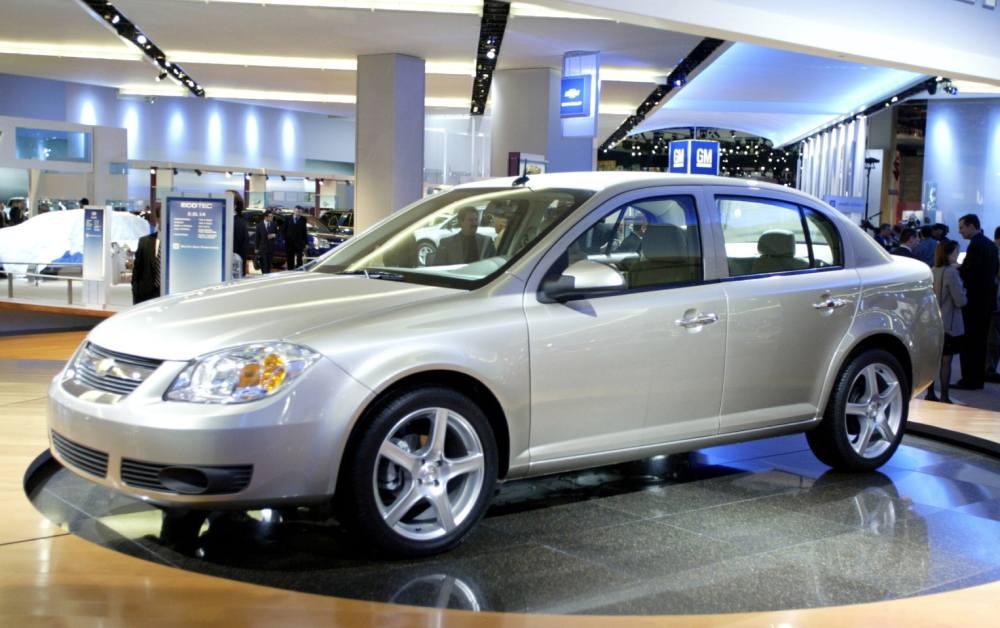DETROIT — The U.S. government’s auto safety watchdog is investigating whether General Motors acted quickly enough to recall 1.6 million older-model small cars in a case linked to 13 deaths.
The National Highway Traffic Safety Administration said Wednesday night that it opened the probe “to determine whether GM properly followed the legal processes and requirements for reporting recalls.”
The agency has the authority to fine GM as much as $35 million under legislation that went into effect late last year. The previous maximum fine automakers faced per incident was $17.35 million.
On Tuesday, GM doubled the number of cars in the recall for faulty ignition switches. The problem has been linked to 31 front-end crashes that caused the 13 deaths. The company also issued a rare apology, saying its process to examine the problem was not robust enough when it surfaced about a decade ago.
A chronology of events filed Monday with NHTSA by GM show it knew of the problem as early as 2004.
Since undergoing a painful bankruptcy in 2009, GM has removed layers of bureaucracy, improved the quality of its vehicles and is quicker to issue recalls when problems occur. However, its admission that its procedures were lacking 10 years ago shows how the old culture can still haunt the automaker.
“The chronology shows that the process employed to examine this phenomenon was not as robust as it should have been,” GM North America President Alan Batey said in a statement. “Today’s GM is committed to doing business differently and better.”
On Feb. 13, GM announced the recall of more than 780,000 Chevrolet Cobalts and Pontiac G5s (model years 2005-07). Then on Tuesday, it doubled up, adding 842,000 Saturn Ion compacts (2003-07), and Chevrolet HHR SUVs, Pontiac Solstice and Saturn Sky sports cars (2006-07). Most of the cars were sold in the U.S., Mexico and Canada.
GM says a heavy key ring or jarring from rough roads can cause the ignition switch to move out of the run position and shut off the engine and electrical power. That can knock out power-assisted brakes and steering and disable the front air bags. In the fatalities, the air bags did not inflate, but the engines did not shut off in all cases, GM said.
It was unclear whether the ignition switches caused the crashes, or whether people died because the air bags didn’t inflate.
According GM’s chronology, the company knew of the problem as early as 2004, and was told of at least one fatal crash in March of 2007. GM issued service bulletins in 2005 and 2006 telling dealers how to fix the problem with a key insert, and advising them to warn customers about overloading their key chains.
The company’s records showed that only 474 vehicle owners got the key inserts.
GM thought the service bulletin was sufficient because the car’s steering and brakes were operable even after the engines lost power, according to the chronology.
By the end of 2007, GM knew of 10 cases in which Cobalts were in front-end crashes where the air bags didn’t inflate, the chronology said.
Send questions/comments to the editors.



Success. Please wait for the page to reload. If the page does not reload within 5 seconds, please refresh the page.
Enter your email and password to access comments.
Hi, to comment on stories you must . This profile is in addition to your subscription and website login.
Already have a commenting profile? .
Invalid username/password.
Please check your email to confirm and complete your registration.
Only subscribers are eligible to post comments. Please subscribe or login first for digital access. Here’s why.
Use the form below to reset your password. When you've submitted your account email, we will send an email with a reset code.